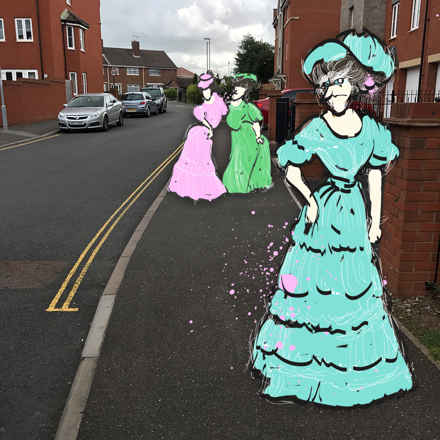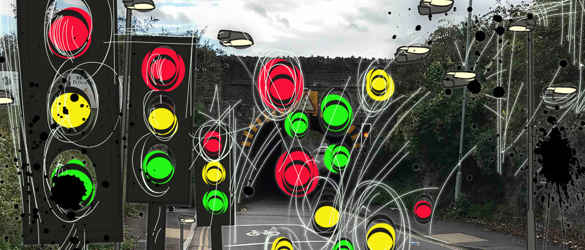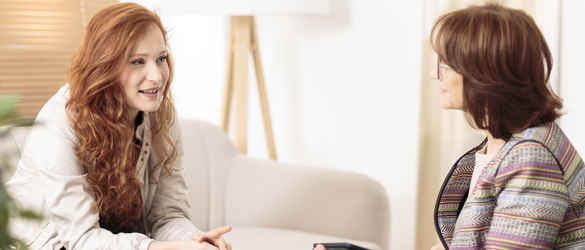'The more that is known about Charles Bonnet syndrome, the better'
Posted: Thursday 01 February 2024
Researchers at Royal Holloway University looking into the effectiveness of different techniques to help manage visual hallucinations are calling for more participants to take part in the first study of its kind.
The project, led by professor Robin Walker, aims to reduce the frequency of hallucinations, known as Charles Bonnet syndrome (CBS), thought to affect up to half of people living with macular disease.
Three participants from the study have shared their experiences, as the project enters its second year.
Mike's experience
Mike, who has wet age-related macular degeneration (AMD), often experiences hallucinations in low light, including animals and a mysterious figure he is unable to identify.
He said: “The first hallucination was so realistic that I thought for a minute that it was a cat sitting on my desk, a big, fluffy tabby. I realised that it wasn't there when I looked more closely and it disappeared. I was curious more than anything.”
Mike, 74 also described visions of a large owl on his desk and a dog running under his legs. Unlike many others, Mike knew about CBS before experiencing any hallucinations, after reading about it when researching his AMD.
He said; “My motivation for this was that I realised if I hadn’t read about Charles Bonnet syndrome beforehand, it would have really freaked me out, especially if I'd been a nervous or superstitious person. I think that happens to a lot of people so the more that is known about this, the better.”
Mike said he found looking for methods to manage CBS was ‘very reassuring’. “You realise this doesn’t have to be something that is out of your control, that you can't cope with it,” he said. “For me, what was more reassuring than anything else was to know that this is a recognised thing, it happens to other people so you’re not alone.
“The more this can be confirmed by studies like this, and the more that can be publicised about CBS, the better I think it's going to be for people.”
Alison's experience
Alison, who was diagnosed with macular dystrophy in her 40s, years after changes were first detected, mostly experiences patterns when in the car as a passenger, after she decided to stop driving.
Similar to Mike, she explained: “When I tried to focus on them, they disappear. They’ve never upset me and when I mentioned it at an appointment the consultant told me they are fairly common, so I’ve never worried about it. It wasn’t until last year that I came across an interview about this visual hallucination study with professor Walker.”
The 47-year-old mum was also keen to take part in the study as she thought about the possibility of her condition being passed on to her daughter.
Alison said: “I don't know whether or not she's inherited the genes but I wanted to do anything and everything that could help future generations. For me, it doesn't bother me that much but if things get worse I may as well have a technique or two to try and help manage the visual hallucinations.
“I do think the more you know about something, the less scary it is. Also the more that might be able to be found out about it and eventually, hopefully, cure it.”
Sarah's experience
Sarah took part in the study after feeling “abandoned” by healthcare professionals, who she felt did not believe she was having visual hallucinations. She was finally able to understand what CBS was through her local Eye Clinic Liaison Officer, following a retinal tear in one eye.
Sarah, 31, said: “Nobody seemed to believe what I was experiencing. I see patterns all the time, they’re quite distressing, like groovy 1970s patterns, but they're constantly on the move at high speed like a kaleidoscope. But when I found out about CBS, I suddenly realised that it was a result of my sight loss and when I understood what I was experiencing, I felt a lot better.
“What’s worrying is that we go and see all these specialists, eye doctors and all the rest of it and no one could tell me anything about it. I nearly had a breakdown because I was made to feel an idiot for thinking I could possibly have Charles Bonnet syndrome because I wasn't blind, and that was the lowest point, it was really difficult to deal with because so much is going through your head.”
She added: “It's been interesting, and to have that feeling of finally knowing I'm not the only one with these hallucinations, that there are so many others out there. It was interesting to find out that there are even any techniques to help different people, because I had been given no help from any doctors at all before.
“I think it needs to be known that there are tricks to manage Charles Bonnet syndrome, and the most difficult thing about the condition is that while a particular one I tried didn't really work for me, it could work for someone else.
“I don't think I will ever find one that will give me a significant pause from them, but there may be something that calms it down when it's really intense.”
Take part in the trial
Professor Walker’s study is particularly interested in evaluating the effectiveness of eye movement therapy and distraction/interruption therapy.
The trial aims to understand whether the current recommendations for stopping CBS hallucinations do help. Having proof of whether these therapies work would ensure these techniques are better promoted to those who might need them.
Take part in the study in 2024
To get involved, email Professor Walker’s team at CBS.study1@gmail.com
Charles Bonnet syndrome (CBS)
Up to half of all people with sight loss caused by macular degeneration may see the visual hallucinations known as Charles Bonnet syndrome (CBS). Hallucinations caused by Charles Bonnet syndrome can be funny, distracting or even frightening, but they are very normal and not a sign of dementia or mental illness.
Support for you
We provide free information and support to those with macular disease, along with their family and friends, to help people keep their independence.




